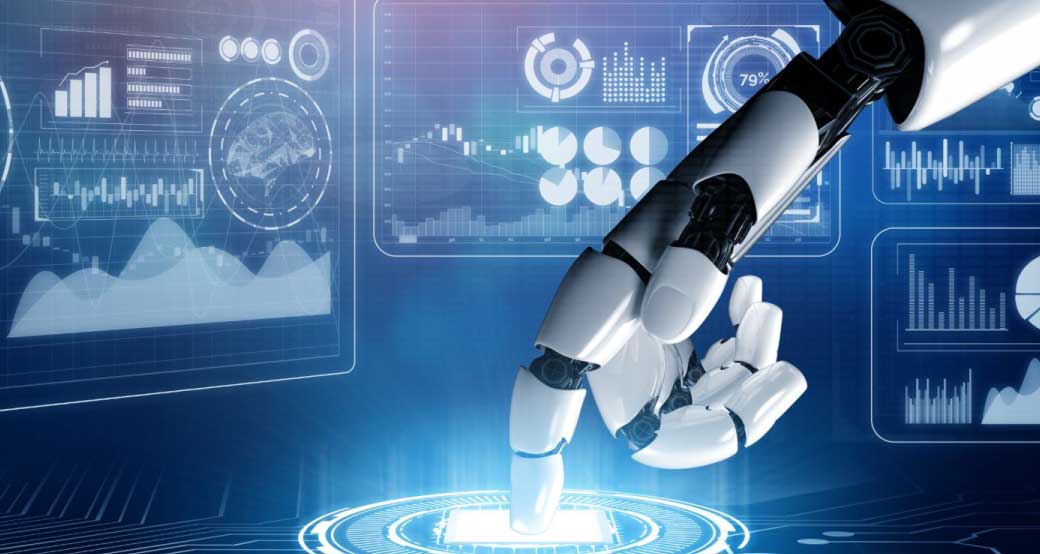1. Introduction: The Unseen Assistant—AI in Your Daily Life
Artificial intelligence has blended too much into our everyday life—from a futuristic concept to an invisible, necessary assistant. Imagine this: waking from slumber courtesy of your sleep-tracking app and asking your smart speaker for the weather in the day ahead and the news, while your phone knows the speedy route to work from real-time traffic updates. Magic? Nope! It was AI roving around in the background! And, thus, right from the moment we are unlocking the phone with a face until the smart lights dim for the evening, AI has been harnessing our preferences and streamlining activities so that living becomes easy, efficient, personalised, and apt, often without any acknowledgement from our side.
2. Your Smartphone's Brain: More Than Just a Voice Assistant
Your smartphone is the most potent and personal AI device. It does not only end with asking Siri or Google Assistant to set a timer. With the camera and AI in use for computational photography, it instantly optimizes settings by recognizing the scene, like a sunset versus a portrait. Since your keyboard app learns your unique slang and typing habits, it might creep you out with its accurate predictions.
3. The Connected Hub: How AI Fuses the Smart Home Experience Together
The real potential of a smart home is not in the devices themselves, but in how they integrate.
Artificial intelligence is the central connector that links all of these things together. Google Nest and Amazon Echo are the central command centres. Your knowledge is up to date till October 2023. With AI training these smart devices to understand statements like “Goodnight”, many events can be triggered: locking the doors, turning off the lights, lowering the temperature, and switching on the security system. All of this forms a networking environment such that your home becomes simpler and intuitive, with devices being able to communicate with one another and learn your preferences and usage patterns.
4. Climate Control on Autopilot: The Intelligence of Smart Thermostats
It was once a manual game setting the thermostat. Enter the Google Nest Learning Thermostat, a smart device that uses AI to learn within just a few days about your schedule and temperature preferences. It then starts to build that whole automated schedule to keep your home comfortable when you feel like being in there and energy-efficient while you’re away from it. It can even sense you coming home based on occupancy and cell positioning so that it can welcome you with a nice warm or cool atmosphere. Intelligent climate control does not just mean comfort; it also means empowerment to keep your energy bills and footprint low, without holding your hand all the time.
5. Culinary Precision: AI as Your Sous-Chef
The kitchen is the new frontier for AI. Then, smart ovens recognise what you put inside them—chicken, pizza, or casserole—and the optimal temperature and cooking time. To help you cut food waste, fridges with cameras read your groceries, alert you that your milk is low, and even suggest recipes from what’s in the fridge. App-connected smart scales can accurately walk you through fussy recipes, each time with outstanding results.
6. The Vigilant Guardian: AI-Powered Home Security and Safety
Smart doorbells or video doorbells such as Ring or Arlo can distinguish between a tree branch, a pet, a car and a person. That is, you receive precise and appropriate notifications on your phone—”Person at the front door” or “Package delivered”—and not a series of inaccurate alarms. And AI can be taught to recognise your family’s pattern and notify you of abnormal behaviour, and intelligent sensors can detect breaking glass and offer an active and context-dependent security system.
7. Personal Entertainment: How AI Trims Your Playlists and Screen
Our entertainment is now thoughtfully chosen for us by artificial intelligence. Services like Netflix and Spotify are prime examples. They have this sort of quasi-futuristic recommendation technology that scans your viewing or listening history, compares it to millions of others with similar preferences and employs machine learning to predict what you’ll want next. It’s how you end up totally hooked on the most recommended shows on Netflix or convinced that Spotify’s “Discover Weekly” playlist really was made just for you. This personalisation should make sure you spend more of your time watching what is relevant to you and less mindlessly scrolling.
8. The ROI of Efficiency: How AI and Intelligent Enterprises Save Time and Money
In return for employing AI-based intelligent enterprises, there are savings in time and money made by effecting the efficiency into ROI. In actual life, that is the total net effect of all this integration with AI. In fact, AI has saved much valuable time and mental space from carrying out day-to-day tasks such as fiddling with thermostats or dimming lights, making grocery lists, or planning evenings without traffic. The immediate economic benefits of energy saving are perceptible. On a grander scale, this will make living more sustainable by reducing waste. In the end, everyday AI is meant to take care of the annoying stuff and free you up to do what actually brings value to your day.
9. All in all, the concerns are valid: Privacy and Data Security in an AI World
It is essential to combat the alarming threats that come with introducing AI into our lives, and the devices in question all work by gathering data—your spoken commands, work schedules, and video recordings. That also means that there are concerns and questions about privacy, permanent storage, and, lastly, who has access to this data. For starters, users should do everything in their power: have unique passwords and ensure that they use two-factor authentication when it is available, accept their device’s permissions, and check their settings often. Consumers can Also select products from companies with clear data policies. It is worth learning about this trade-off between privacy and simple usability.
10. Conclusion: An Emergent Partnership — What’s on the Horizon for Everyday AI?
The artificial intelligence revolution of our daily lives isn’t complete, but it’s certainly an evolution. The future is in even more anticipatory and frictionless experiences. We are heading toward “ambient intelligence”, in which A.I. toil behind the scenes to construct environments that both anticipate and satisfy our needs without explicit instructions. Picture a home that can tailor the lighting and music for your mood or that knows when you need to restock the fridge. Not as master to servant, but a relationship where AI will extend and augment our capabilities – all while making every experience truly personalized.




